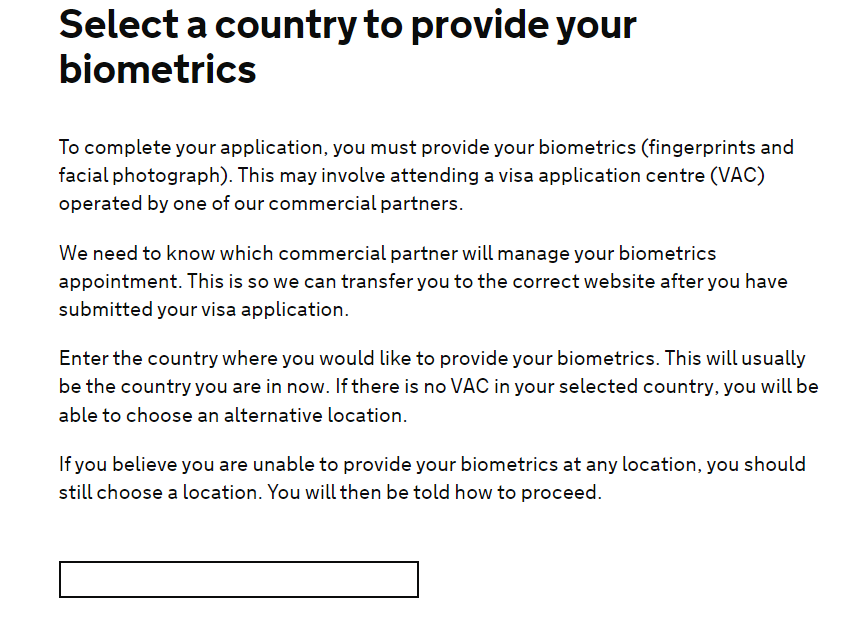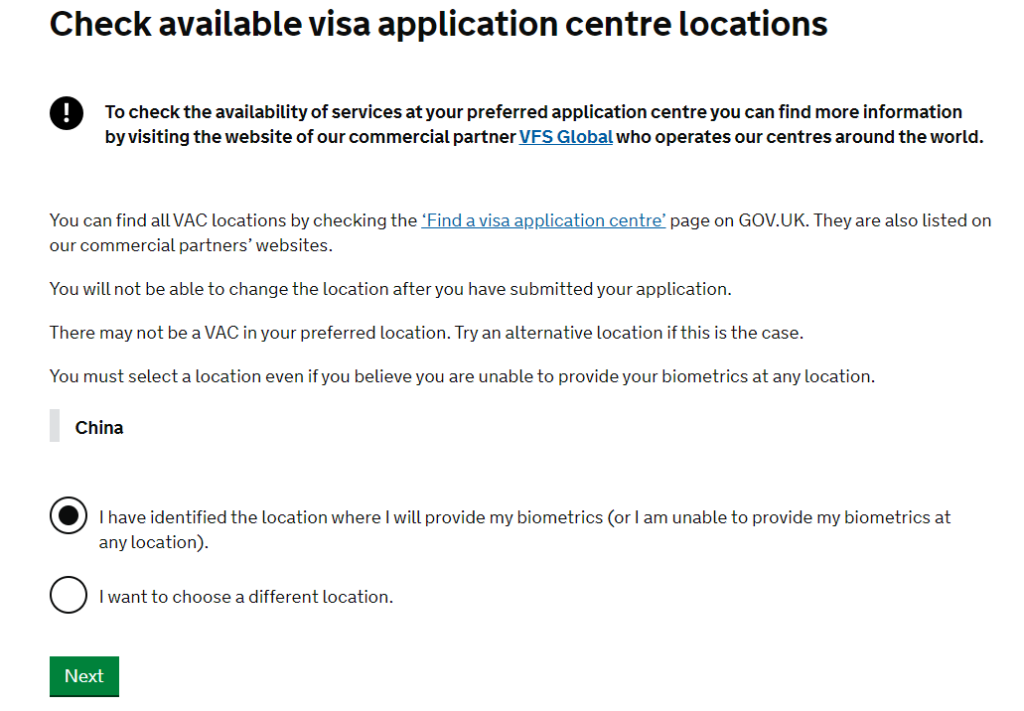Looking to embark on a professional journey in the UK? The UK High Potential Individual (HPI) Visa offers a promising pathway for talented individuals worldwide. In this guide, we’ll navigate through the intricacies of the application process, providing step-by-step instructions and essential insights to help you secure this coveted visa and embark on your career aspirations in the UK.
If you’re thinking about studying in the UK, it’s crucial to find the right student accommodation. That’s where uhomes comes in. It’s a reliable platform that helps students like you find the perfect place to live in London, Manchester, Nottingham, Newcastle, Leeds and many other cities.

What is High Potential Individual (HPI) Visa?
The High Potential Individual Visa (HPI) is a new pathway for the UK to attract top global talent, having been opened for applications on May 30, 2022. Graduates from leading international universities meeting the criteria can apply directly for this visa. Notably, unlike the PSW visa, the HPI is specifically for graduates of UK universities abroad, offering a 2-year work visa for Bachelor’s or Master’s degree holders and a 3-year visa for PhD holders. One of its unique features is that sponsorship is not required, making it an attractive option for those looking to live and work in the UK.
Advantages of High Potential Individual (HPI) Visa
- You’re eligible to apply if you’ve graduated from universities listed by the British government, even if it’s not a British university and you haven’t been sponsored by a British employer.
- You can apply within 5 years of your graduation. Your graduation date should match the corresponding year on the list of universities. For example, if you graduated between November 1, 2021, and October 31, 2022, refer to the 2021 university list.
- There’s no limit on the number of graduates per year, and no specific field of study or income requirement for the HPI visa.
- The HPI visa doesn’t count towards the 5-year permanent residence period, similar to the PSW short-term work visa. However, successful HPI visa holders can switch to other long-term employment visas (Long-term Employment Visa) that count towards permanent residence after 2 years if they meet the criteria.
- Family members (spouse and minor children) of the applicant can also apply for the visa.
HPI Visa Application Requirements
The High Potential Personnel (HPI) visa has specific criteria for applicants. Along with graduating from a recognized institution, you must:
- Be at least 18 years old
- Have graduated from a recognized university within the last 5 years
- Meet the minimum English language proficiency of level B1 or higher
- Provide a valid tuberculosis test report
List of Recognized Universities for HPI Visa
This list is updated yearly and varies depending on the year of the applicant’s degree certification. For instance, the 2022 list applies to degrees awarded between November 1, 2022, and October 31, 2023. Below, we’ve included the recognized universities for the HPI visa in recent years for your convenience.
Click the title to expand or collapse!
| Institution | Country |
| California Institute of Technology (Caltech) | USA |
| Columbia University | USA |
| Cornell University | USA |
| Delft University of Technology | Netherlands |
| Duke University | USA |
| Ecole Polytechnique Fédérale de Lausanne (EPFL Switzerland) | Switzerland |
| ETH Zurich (Swiss Federal Institute of Technology) | Switzerland |
| Fudan University | China |
| Harvard University | USA |
| Johns Hopkins University | USA |
| Karolinska Institute | Sweden |
| Kyoto University | Japan |
| Massachusetts Institute of Technology (MIT) | USA |
| McGill University | Canada |
| Nanyang Technological University (NTU) | Singapore |
| National University of Singapore | Singapore |
| New York University | USA |
| Northwestern University | USA |
| Paris Sciences et Lettres – PSL Research University | France |
| Peking University | China |
| Princeton University | USA |
| Shanghai Jiao Tong University | China |
| Stanford University | USA |
| Technical University of Munich | Germany |
| Tsinghua University | China |
| University of British Columbia | Canada |
| University of California, Berkeley | USA |
| University of California, Los Angeles | USA |
| University of California, San Diego | USA |
| University of Chicago | USA |
| University of Hong Kong | Hong Kong |
| University of Melbourne | Australia |
| University of Michigan-Ann Arbor | USA |
| University of Pennsylvania | USA |
| University of Tokyo | Japan |
| University of Toronto | Canada |
| University of Washington | USA |
| Yale University | USA |
| Zhejiang University | China |
| Institution | Country |
| California Institute of Technology (Caltech) | USA |
| Chinese University of Hong Kong | Hong Kong |
| Columbia University | USA |
| Cornell University | USA |
| Duke University | USA |
| Ecole Polytechnique Fédérale de Lausanne (EPFL Switzerland) | Switzerland |
| ETH Zurich (Swiss Federal Institute of Technology) | Switzerland |
| Harvard University | USA |
| Johns Hopkins University | USA |
| Karolinska Institute | Sweden |
| Kyoto University | Japan |
| Massachusetts Institute of Technology (MIT) | USA |
| McGill University | Canada |
| Nanyang Technological University (NTU) | Singapore |
| National University of Singapore | Singapore |
| New York University | USA |
| Northwestern University | USA |
| Paris Sciences et Lettres – PSL Research University | France |
| Peking University | China |
| Princeton University | USA |
| Stanford University | USA |
| Technical University of Munich | Germany |
| Tsinghua University | China |
| University of British Columbia | Canada |
| University of California, Berkeley | USA |
| University of California, Los Angeles | USA |
| University of California, San Diego | USA |
| University of Chicago | USA |
| University of Hong Kong | Hong Kong |
| University of Illinois at Urbana-Champaign | USA |
| University of Melbourne | Australia |
| University of Michigan-Ann Arbor | USA |
| University of Pennsylvania | USA |
| University of Queensland (UQ) | Australia |
| University of Texas at Austin | USA |
| University of Tokyo | Japan |
| University of Toronto | Canada |
| University of Washington | USA |
| Yale University | USA |
| Zhejiang University | China |
| Institution | Country |
| California Institute of Technology (Caltech) | USA |
| Chinese University of Hong Kong (CUHK) | Hong Kong |
| Columbia University | USA |
| Cornell University | USA |
| Duke University | USA |
| Ecole Polytechnique Fédérale de Lausanne (EPFL Switzerland) | Switzerland |
| ETH Zurich (Swiss Federal Institute of Technology) | Switzerland |
| Harvard University | USA |
| Johns Hopkins University | USA |
| Karolinska Institute | Sweden |
| Kyoto University | Japan |
| Massachusetts Institute of Technology (MIT) | USA |
| McGill University | Canada |
| Nanyang Technological University (NTU) | Singapore |
| National University of Singapore | Singapore |
| New York University (NYU) | USA |
| Northwestern University | USA |
| Paris Sciences et Lettres – PSL Research University | France |
| Peking University | China |
| Princeton University | USA |
| Stanford University | USA |
| Tsinghua University | China |
| University of British Columbia | Canada |
| University of California, Berkeley | USA |
| University of California, Los Angeles (UCLA) | USA |
| University of California, San Diego | USA |
| University of Chicago US | USA |
| University of Hong Kong | Hong Kong |
| University of Melbourne | Australia |
| University of Michigan-Ann Arbor | USA |
| University of Munich (LMU Munich) | Germany |
| University of Pennsylvania | USA |
| University of Texas at Austin | USA |
| University of Tokyo | Japan |
| University of Toronto | Canada |
| University of Washington | USA |
| Yale University | USA |
| Institution | Country |
| California Institute of Technology (Caltech) | USA |
| Columbia University | USA |
| Cornell University | USA |
| Duke University | USA |
| Ecole Polytechnique Fédérale de Lausanne | Switzerland |
| ETH Zurich (Swiss Federal Institute of Technology) | Switzerland |
| Harvard University | USA |
| Johns Hopkins University | USA |
| Karolinska Institute | Sweden |
| Kyoto University | Japan |
| Massachusetts Institute of Technology (MIT) | USA |
| McGill University | Canada |
| Nanyang Technological University (NTU) | Singapore |
| National University of Singapore | Singapore |
| New York University (NYU) | USA |
| Northwestern University | USA |
| Paris Sciences et Lettres – PSL Research University | France |
| Peking University | China |
| Princeton University | USA |
| Stanford University | USA |
| Technical University of Munich (Technische Universität München) | Germany |
| Tsinghua University | China |
| University of British Columbia | Canada |
| University of California, Berkeley | USA |
| University of California, Los Angeles (UCLA) | USA |
| University of California, San Diego | USA |
| University of Chicago | USA |
| University of Hong Kong | Hong Kong |
| University of Illinois at Urbana-Champaign | USA |
| University of Melbourne | Australia |
| University of Michigan-Ann Arbor | USA |
| University of Pennsylvania | USA |
| University of Texas at Austin | USA |
| University of Tokyo | Japan |
| University of Toronto | Canada |
| University of Washington | USA |
| University of Wisconsin-Madison | USA |
| Washington University in St Louis | USA |
| Yale University | USA |
| Institution | Country |
| Australian National University | Australia |
| California Institute of Technology (Caltech) | USA |
| Carnegie Mellon University | USA |
| Columbia University | USA |
| Cornell University | USA |
| Duke University | USA |
| Ecole Polytechnique Fédérale de Lausanne (EPFL Switzerland) | Switzerland |
| ETH Zurich (Swiss Federal Institute of Technology) | Switzerland |
| Harvard University | USA |
| Heidelberg University | Germany |
| Hong Kong University of Science and Technology | Hong Kong |
| Johns Hopkins University | USA |
| Karolinska Institute | Sweden |
| Kyoto University | Japan |
| Massachusetts Institute of Technology (MIT) | USA |
| McGill University | Canada |
| Nanyang Technological University (NTU) | Singapore |
| National University of Singapore | Singapore |
| New York University | USA |
| Northwestern University | USA |
| Peking University | China |
| Princeton University | USA |
| Stanford University | USA |
| Tsinghua University | China |
| University of British Columbia | Canada |
| University of California, Berkeley | USA |
| University of California, Los Angeles (UCLA) | USA |
| University of California, San Diego (UCSD) | USA |
| University of Chicago US | USA |
| University of Hong Kong | Hong Kong |
| University of Illinois at Urbana-Champaign | USA |
| University of Melbourne | Australia |
| University of Michigan-Ann Arbor | USA |
| University of Pennsylvania | USA |
| University of Texas at Austin | USA |
| University of Tokyo | Japan |
| University of Toronto | Canada |
| University of Washington | USA |
| Yale University | USA |
| Institution | Country |
| Australian National University (ANU) | Australia |
| California Institute of Technology (Caltech) | USA |
| Carnegie Mellon University | USA |
| Columbia University | USA |
| Cornell University | USA |
| Duke University | USA |
| Ecole Polytechnique Fédérale de Lausanne (EPFL Switzerland) | Switzerland |
| ETH Zurich (Swiss Federal Institute of Technology) | Switzerland |
| Harvard University | USA |
| Heidelberg University | Germany |
| Hong Kong University of Science and Technology | Hong Kong |
| Johns Hopkins University | USA |
| Karolinska Institute | Sweden |
| Kyoto University | Japan |
| Massachusetts Institute of Technology (MIT) | USA |
| McGill University | Canada |
| National University of Singapore | Singapore |
| New York University | USA |
| Northwestern University | USA |
| Peking University | China |
| Princeton University | USA |
| PSL Université Paris (Paris Sciences & Lettres) | France |
| Stanford University | USA |
| Technical University of Munich | Germany |
| Tsinghua University | China |
| University of British Columbia | Canada |
| University of California, Berkeley | USA |
| University of California, Los Angeles | USA |
| University of California, San Diego | USA |
| University of Chicago US | USA |
| University of Hong Kong | Hong Kong |
| University of Illinois at Urbana-Champaign | USA |
| University of Melbourne | Australia |
| University of Michigan-Ann Arbor | USA |
| University of Pennsylvania | USA |
| University of Texas at Austin | USA |
| University of Tokyo | Japan |
| University of Toronto | Canada |
| University of Washington | USA |
| University of Wisconsin-Madison | USA |
| Yale University | USA |
HPI Visa Application Process
Step 1: Visit the UK government’s official HPI Visa page and click “Start now.”

Step 2: Select your intended residence and passport type.


Step 3: Select a country to provide your biometrics, then check available visa application center locations.


Step 4: Proceed to the application by entering your registered email and filling in personal and educational details.

Step 5: Upload required documents like passport, English proficiency certificate, Tuberculosis Test Results, and Ecctis degree certification.
Step 6: Complete the visa fee payment and await processing, which may take 3 to 8 weeks.
Step 7: Additional documents or an interview may be requested.
HPI Visa Application Fees:
When applying for a High Potential Individual (HPI) visa, you’ll encounter the following fees:
- £210 for Ecctis accreditation to verify academic qualifications (£252 for applications within the UK)
- £715 visa application fee
- £624/year for medical surcharge
- £1270 for proof of assets
UK High Potential Individual (HPI) Visa FAQ
No, the Highly Promising Individual (HPI) visa is for highly educated individuals from overseas. Students studying in the UK are not eligible for the HPI visa but may apply for the Graduate Route, also known as the PSW visa.
Yes, you can still apply for an HPI visa as long as you do so within 5 years of obtaining your qualifying university degree.
Yes, you can bring your partner and children with you as your dependants. They can apply to join you or stay in the UK, and if successful, their visa will align with yours. However, proof of relationship is required, and they will need to pay a fee.
If you need to amend your application after submission, you must contact UKVI via email for assistance.







